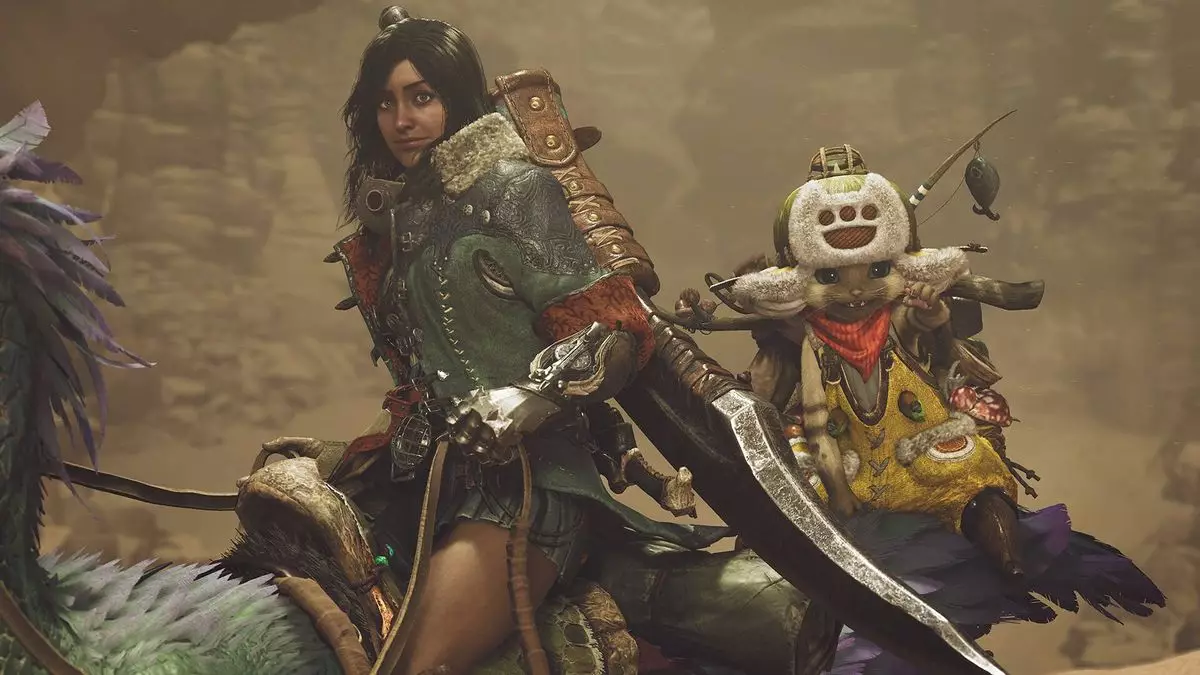In a landscape where online connectivity is crucial for gaming experiences, a recent outage of the PlayStation Network (PSN) has sparked concern and speculation within the gaming community. Spanning the entirety of February 8, this disruption rendered many games unplayable, particularly impacting the fervent fans of Capcom’s much-anticipated title, Monster Hunter Wilds. The timing of the outage was unfortunate, immediately clashing with the scheduled second open beta session, which was intended to run from February 6 to February 9. This situation posed a significant obstacle for players looking to engage with the game’s online elements, leaving many feeling frustrated and disconnected.
In light of these circumstances, Capcom took to social media to directly address the concerns of players. They expressed empathy towards the community, acknowledging the disruption as an “inconvenience” that hindered potential participation in the beta. The company’s willingness to listen to the fanbase is a positive indicator of their commitment to user experience. Their announcement hinted at the possibility of extending the beta period by an additional 24 hours, a gesture that would allow players to enjoy the content they were initially unable to access due to the outages. This kind of flexibility from developers is invaluable in building goodwill within the community, demonstrating a recognition of the challenges players face.
This incident with PSN is not unique but rather highlights an ongoing issue that gamers frequently encounter: the fragility of online services. While Capcom is exploring solutions, the reality is that many players rely heavily on stable networks for their interactive experiences. Sony’s decision to compensate PlayStation Plus members with an extra five days of service is a commendable attempt to rectify the situation, underscoring the importance of keeping their customer base satisfied amidst service disruptions. However, such measures can only go so far in mitigating the disruption of a much-anticipated gaming event.
Amidst these technical difficulties, the excitement surrounding Monster Hunter Wilds remains palpable. Players shared moments of joy and surprise over the reappearance of a quirky, nostalgic bug that transforms characters into a retro PS1-style appearance. While Capcom had signaled that this and other enhancements were on the horizon for the full release due February 28, the revelation that they were still present, albeit in a glitchy form, showcased the game’s whimsical charm. Indeed, the developers’ own amusement at player reactions reflects a healthy rapport between creators and their audience, essential for any game’s longevity.
Ultimately, Capcom’s introspection post-outage serves as a pivotal moment to re-evaluate player engagement tactics. The prospect of an extended beta session not only mitigates the impact of the recent PSN fiasco but also reinforces Capcom’s dedication to fostering a vibrant gaming community. As fans await the official release of Monster Hunter Wilds, the company’s responsive approach may well lay the groundwork for a successful launch, proving that even amidst technical setbacks, a strong connection with the player community can pave the way for vibrant gaming experiences.


Leave a Reply